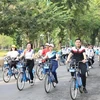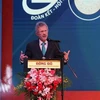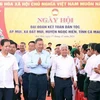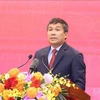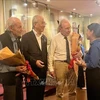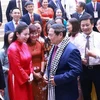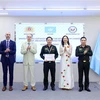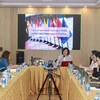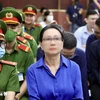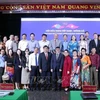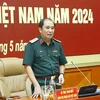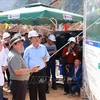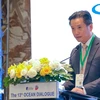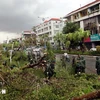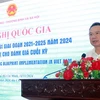Deputy Prime Minister Vu Van Ninh called upon the Southwestern region to continue restructuring its agricultural sector and building new-style rural areas, and strive towards sustainable poverty alleviation in order to boost socio-economic development.
Speaking at a conference held by the Steering Committee for the Southwestern Region in Can Tho city on July 22, Ninh, who is also head of the committee, reminded participants of the importance of close cooperation between regional localities and central-level ministries and sectors.
He emphasised the need for local residents, cooperatives and businesses to work together to find markets for agricultural products, develop trademarks and continue the equitisation of enterprises.
According to the steering committee’s report, the region made significant improvements in terms of socio-economic development in the first half of 2015. Growth was recorded in agricultural and industrial production, trade, services and tourism. Attention was paid to socio-cultural issues, social welfare and policies for ethnic minorities and religious groups, as well as defence and security.
During the conference, the participants highlighted the advantages of the region and challenges faced in implementing political tasks.
Leaders of the localities proposed the Government continue the implementation of socio-economic development policies for each locality in the region, including on infrastructure upgrades, poverty reduction and investment attraction.
The Southwestern region comprises Can Tho city and 12 provinces, namely Long An, Tien Giang, Dong Thap, Soc Trang, Ben Tre, Vinh Long, Tra Vinh, Hau Giang, An Giang, Kien Giang, Bac Lieu and Ca Mau.-VNA


